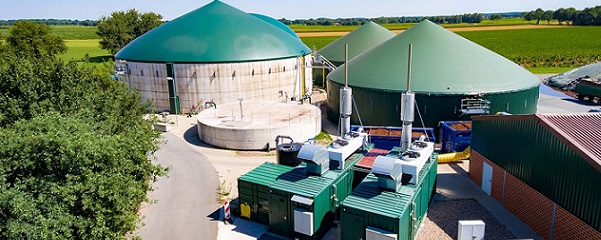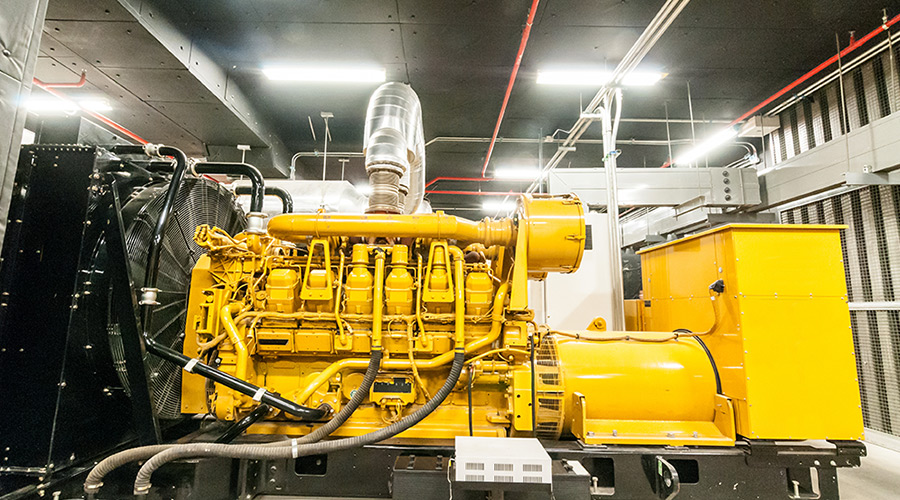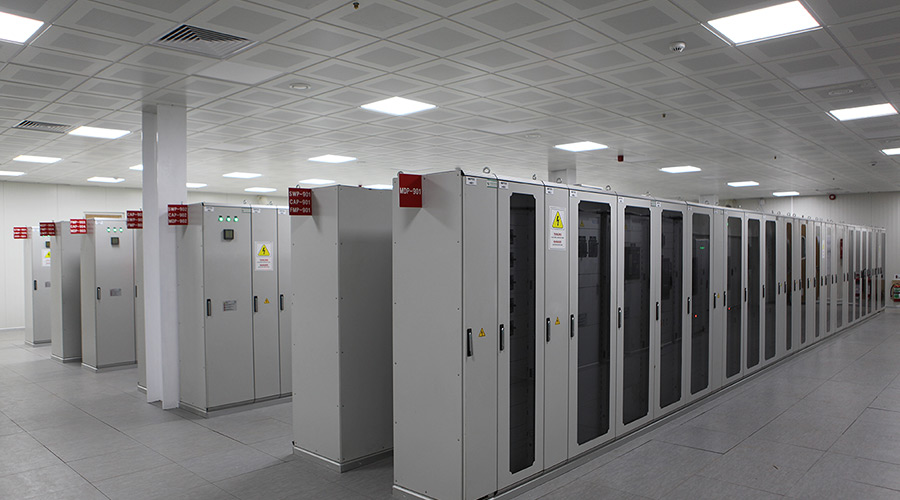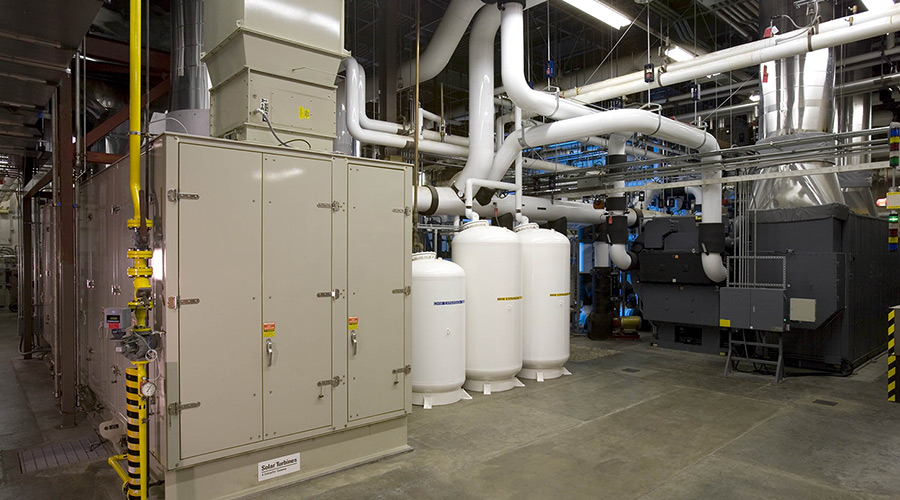Header B Form
Lorem ipsum dolor sit amet
Thank you for your interest
Access to the report has been sent to your email address.
What are the benefits of combined heat and power?
CHP solutions provide efficient, reliable, and more affordable power for businesses and institutions. Combined heat and power (CHP), also known as cogeneration, is a suite of technologies that can use a variety of fuels to generate electricity or power at the point of use, allowing the heat that would normally be lost in the power generation process to be recovered to provide needed heating and/or cooling.
CHP-backed infrastructure can yield a host of benefits:
- Increased energy efficiency
- Reduced energy costs
- Greater energy reliability
- Emergency preparedness
- Reduced air pollution emissions
- Microgrid capabilities & islanding
- Shield against erratic utility prices
Types of CHP Technologies

Combined Heat and Power
CHP technologies are a source of efficient, cost-effective and resilient energy - perfect for hospitals and nursing facilities, military installations and hotels.
Microgrids
For emergency response facilities and other critical infrastructure sites, microgrids offer reliability and resiliency during grid outage.
Getting Technical Assistance
CHP experts here at the Western CHP TAP can help determine if CHP is worth a closer look for any facility, both technically and financially. Through a high-level qualification assessment of the site, we help you evaluate if energy costs, thermal loads, site operating hours, and other key site characteristics show potential for a highly efficient, cost-effective CHP project. 
Screenings from CHP experts at Western CHP TAP can help you determine if CHP is worth a closer look for your facility, both technically and financially.
During this first step, our engineers talk you through a series of screening questions, combined with a high-level qualification assessment of the economic and technical viability of CHP at your site, using basic site information.
Feasibility analyses are typically based on utility bills from the previous year, information on daily and seasonal electric and thermal load profiles and insights into site-specific issues such as expansion plans or power reliability problems that may factor into CHP system selection or sizing.
Under this advanced technical assistance, CHP experts offer support designed to help CHP projects succeed. This includes unbiased, technical third party reviews of vendor proposals and engineering-grade analyses, information on financing, grants and incentives and more.
Content Block D Title
Lorem ipsum dolor sit amet ipsum dolor sit amet ipsum dolor sit amet ipsum dolor sit amet ipsum dolor sit amet ipsum dolor sit amet ipsum dolor sit amet ipsum dolor sit amet ipsum dolor sit amet ipsum dolor sit amet ipsum dolor sit amet ipsum dolor sit amet ipsum dolor sit amet ipsum dolor sit amet ipsum dolor sit amet ipsum dolor sit amet amet ipsum dolor sit amet ipsum dolor sit amet ipsum dolor sit amet ipsum dolor sit amet ipsum dolor sit amet ipsum dolor sit amet ipsum dolor sit amet ipsum dolor sit amet amet ipsum dolor sit amet ipsum dolor sit amet ipsum dolor sit amet ipsum dolor sit amet.

Content Block E Title
Lorem ipsum dolor sit amet ipsum dolor sit amet ipsum dolor sit amet ipsum dolor sit amet ipsum dolor sit amet ipsum dolor sit amet ipsum dolor sit amet ipsum dolor sit amet ipsum dolor sit amet ipsum dolor sit amet ipsum dolor sit amet ipsum dolor sit amet ipsum dolor sit amet ipsum dolor sit amet ipsum dolor sit amet ipsum dolor sit amet amet ipsum dolor sit amet ipsum dolor sit amet ipsum dolor sit amet ipsum dolor sit amet ipsum dolor sit amet ipsum dolor sit amet ipsum dolor sit amet ipsum dolor sit amet amet ipsum dolor sit amet ipsum dolor sit amet ipsum dolor sit amet ipsum dolor sit amet.
Content Block F Title
Explore Project Profiles
Discover how CHP technologies have helped sites across diverse industries reduce energy costs without compromising resiliency or reliability.

Arizona State University
Market Sector: Colleges & Universities
Facility Peak Load: 36 MW
Use Case: Space conditioning, water heating, food preparation
CHP Total Efficiency: 75%

USMC Air Ground Combat Center
Market Sector: Military
Facility Peak Load: 26 MW
Use Case: Space conditioning, water heating
Annual Cost Savings: $8 million

Westin Princeville Ocean Resort Villas
Market Sector: Hospitality/Hotel
Facility Peak Load: 700 kW
Use Case: Cooling and Pool Heating
CHP Total Efficiency: 70%
Annual Cost Savings: $440,000


